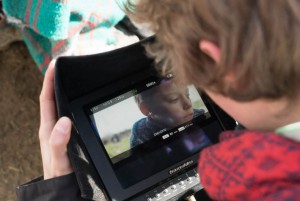University degrees: Postgraduate
Course length: 2 years
Course city: Bruxelles
This new master is the place of the opening towards the cinema and the audio-visual through a double step:
Interpretation practice (common with the Master 60 credits)
– “Game / Camera” experimentation workshops which combine in original devices, student actors with students from audiovisual and writing courses. Sometimes at the base of the proposal, sometimes in front of the camera, sometimes behind, the students will question the creative potential and the interactions of the various speakers assembled on a film set, will become aware of the constraints of each one and will try to transcend them. .
– participation in several practical devices of the audiovisual course: graduation films, actor direction workshops, casting, dubbing, working in multicamera …
Cinema and audiovisual techniques and theory
This important set of courses and seminars, specific or shared in common with the students of the audiovisual department, aims to introduce students to the technical and theoretical aspects of the concrete elaboration of cinematographic and audiovisual works:
– history of cinema, radio and television, editing, analysis of works …
– approach to the basic techniques of cutting, editing, sound recording, image, post-synchronization, overview of the production process …
The master mainly revolves around 3 axes:
It offers the student the opportunity to develop his research under the direction of a director within a system that combines all the dimensions present today in the construction of a show: scenography, sound space, light, costumes, dramaturgy…. These are taken care of by the students of block 3 (B3) of the Bachelor in Theater and Communication Techniques (TTC) supervised by a team of associated teachers specialists in these disciplines. This work is presented to the public in a theater of the Federation Wallonia Brussels, which is associated for this occasion with INSAS.
Outside school, in a professional environment related to the subject of one aspect of the curriculum, they allow the student to understand various cultural, social and professional contexts. They also help refine the definition of the uniqueness of his project. In school, it is open to the student to participate in the final work of the TTC master’s degree – Staging as well as the reading of the work of the students of the TTC master’s degree – Writing.
TEFE is the written report taking stock of an internship relating to the purpose of the studies. This report includes an objective description of the content of the internship, in particular the functions and tasks performed and the trainee’s conclusions on the lived experience. The student demonstrates his ability to express his personal point of view in a clear, structured and argued manner.
